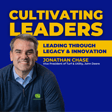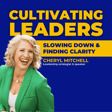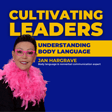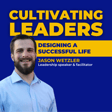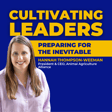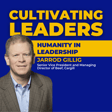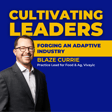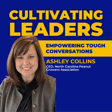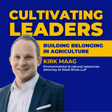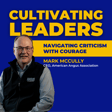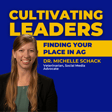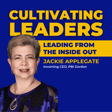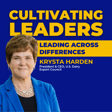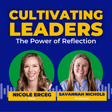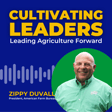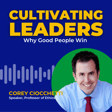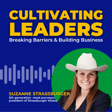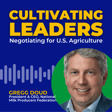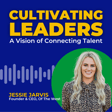
Curating a Curious and Courageous Culture with Courtney White
Courtney White, Head of HR for BASF Agricultural Solutions North America and Global Inclusion Officer, joins The Cultivating Leaders Podcast to dive into the power of inclusion and the value of Human Resources. Courtney shares how today’s most effective HR strategies go beyond hiring—they curate culture. He unpacks what it means to put people first, why timing matters just as much as talent, and how psychological safety drives retention and innovation. Plus, Courtney brings a powerful perspective on inclusion, showing that true belonging is built on mutual respect, everyday courage, and intentional leadership.
Courtney dives into:
- Inclusion is Rooted in Respect: it is a daily practice grounded in mutual respect and is upheld by everyday choices and courage
- The Value of People-centric HR: modern HR must go beyond filling roles to curating culture
- Leading with Courage and Curiosity: leaders must embrace inclusion, ask more than they tell and model respectful behavior
Whether you’re building a team or leading one, this episode offers fresh insights on growing people and purpose in tandem.
Connect with Courtney
- Connect on LinkedIn
- Follow BASF on LinkedIn
- Visit the BASF Website
Connect with AFA
- Follow us on LinkedIn
- Follow us on Instagram
- Like us on Facebook
- Follow us on TikTok
- Visit our Website
About The Cultivating Leaders Podcast
Real stories. Practical advice. Tangible growth. Join The Cultivating Leaders Podcast, brought to you by Agriculture Future of America, as we explore what it takes to lead in food, agriculture, and beyond. Whether you’re just starting out or leading at the highest level, this podcast is your go-to resource for leadership that matters. Listen now and start cultivating your leadership journey.
Don’t forget to follow/subscribe so you never miss another episode!
